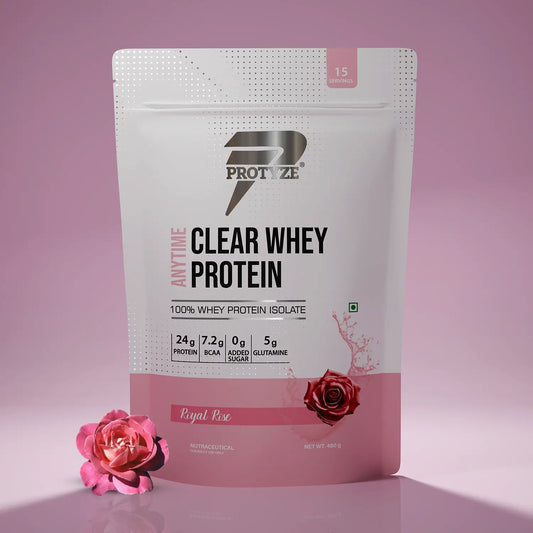Protein is one of the most essential macronutrients, playing a crucial role in maintaining overall health and wellness. It serves as the building block of muscles, tissues, enzymes, and hormones, making it indispensable for bodily functions. Whether you're looking for the best protein powder to build muscle, whey isolate protein for faster recovery, or clear protein supplements to stay energized, incorporating high-protein foods into your diet is vital.
Beyond muscle growth, protein aids in faster recovery after workouts, boosts metabolism, and helps maintain lean body mass. It also supports immune function, improves satiety, and plays a key role in the production of enzymes and hormones that regulate various bodily processes. A high protein diet can prevent muscle loss as we age, enhance skin and hair health, and contribute to overall vitality.
With World Protein Day 2025 around the corner, it’s the perfect time to take a closer look at the best protein supplements and whole foods that can help you maintain a balanced and nutritious diet.
Top 10 High Protein Foods for a Balanced Diet
Given Below is a list of Foods with High Protein for a Proper Balanced diet:
1. Eggs – The Perfect Protein Package
Eggs are one of the most bioavailable sources of protein, providing all nine essential amino acids. They are easy to prepare and fit into any meal of the day. Whether boiled, scrambled, or poached, eggs make a versatile and nutritious addition to your diet.
Benefits:
- High-quality protein source
- Supports muscle growth and repair
- Contains essential vitamins and minerals like B12 and choline
2. Chicken Breast – Lean and Powerful
A staple in high protein diets, chicken breast is low in fat and packed with protein, making it ideal for muscle building and weight management. Grilled, baked, or stir fried, this lean meat is a great way to increase protein intake without excess calories.
Benefits:
- High in protein with low fat content
- Helps in weight management and muscle growth
- Versatile and easy to cook
3. Greek Yogurt – High Protein and Gut-Friendly
Greek yogurt contains double the protein of regular yogurt, along with probiotics that support digestion and gut health. Enjoy it as a snack, in smoothies, or as a base for dressings and dips to boost your protein intake effortlessly.
Benefits:
- Rich in protein and probiotics
- Supports digestive health
- Ideal for snacks and meal additions
4. Lentils – A Plant Based Protein Powerhouse
Rich in protein and fiber, lentils are an excellent vegetarian protein source that also helps maintain stable blood sugar levels. They are easy to cook and can be added to soups, salads, and curries for a nutritious boost.
Benefits:
- Great plant based protein option
- High in fiber for better digestion
- Supports heart health
5. Salmon – Omega 3s with a Protein Boost
Salmon is not only high in protein but also loaded with heart healthy omega-3 fatty acids, making it a great choice for overall well being. Consuming salmon regularly supports brain function, reduces inflammation, and promotes cardiovascular health.
Benefits:
- High in protein and omega-3 fatty acids
- Supports brain and heart health
- Helps in reducing inflammation
6. Cottage Cheese – A Slow-Digesting Protein Source
Cottage cheese is packed with casein protein, which provides a slow and steady release of amino acids, perfect for overnight muscle recovery. It can be enjoyed as a savory snack, added to salads, or paired with fruit for a balanced meal.
Benefits:
- High in slow-digesting casein protein
- Supports muscle recovery
- Rich in calcium for bone health
7. Quinoa – A Complete Plant-Based Protein
Unlike most plant foods, quinoa is a complete protein, offering all essential amino acids along with fiber and essential minerals. It serves as a great alternative to rice or pasta and can be included in salads, soups, or breakfast bowls.
Benefits:
- Complete plant based protein
- High in fiber and essential minerals
- Gluten-free and easy to digest
8. Almonds – Protein-Packed and Nutrient-Dense
Almonds are a great snack option, providing a good balance of protein, healthy fats, and essential vitamins for overall health. A handful of almonds can keep you energized throughout the day while supporting brain function and heart health.
Benefits:
- Rich in protein and healthy fats
- Supports brain function and energy levels
- Great for on the go snacking
9. Lean Chicken – A Classic Muscle-Building Protein
Lean cuts of chicken are rich in protein and iron, essential for muscle repair and oxygen transport in the body. Choosing grain fed chicken ensures a higher nutrient profile, making it a nutritious addition to a high protein diet.
Benefits:
- Excellent source of high quality protein
- High in iron for improved energy levels
- Supports muscle strength and recovery
10. Protyze Clear Whey Protein – A Light and Refreshing Alternative
For those looking for a fast absorbing, refreshing clear protein supplement, Protyze Clear Whey Protein is a great option. Unlike traditional heavy shakes, it offers a light and fruity experience without bloating. Ideal for post workout recovery, it provides high quality best whey protein in a convenient and delicious form.
Benefits:
- Fast absorbing, high quality whey isolate
- Light and refreshing alternative to heavy shakes
- Supports muscle recovery and growth
How to Incorporate These High Protein Foods into Your Diet
Balancing protein intake across meals ensures optimal absorption and muscle recovery. Aim to include a variety of these protein sources in your daily meals to meet your dietary needs.
- Start your day with eggs or Greek yogurt for a high protein breakfast.
- Include lean meats, lentils, or quinoa in your lunch and dinner.
- Snack on almonds or cottage cheese for sustained energy throughout the day.
- Include Supplements like Whey Protein for a quick and effective protein boost.
Protein and Exercise: The Perfect Pairing
Combining high protein foods with regular exercise enhances muscle growth and recovery. A post workout protein drink, such as Protyze Nitro Clear Whey Protein, can help replenish amino acids quickly and support muscle repair.
Quick Tip: Spread Protein Intake Throughout the Day
Instead of consuming all your protein in one meal, distribute it evenly across breakfast, lunch, and dinner for better absorption and sustained energy levels. This approach helps maintain muscle mass and keeps hunger in check.
Conclusion:
Protein Day 2025 is a great reminder to focus on high quality protein sources for better health and fitness. Whether you choose whole foods or convenient whey isolate protein like Protyze Clear Whey Protein, prioritizing protein intake can help you achieve your wellness goals.
Ready to level up your protein game? Explore Protyze’s range of clear protein supplements today!
FAQs About High-Protein Foods
1. How much protein do I need daily?
The recommended daily protein intake varies based on age, activity level, and goals. Generally, 0.8g per kg of body weight is the minimum, but athletes may require 1.2-2.0g per kg.
2. Can I get enough protein from a vegetarian diet?
Yes! Plant-based sources like lentils, quinoa, nuts, and dairy products provide sufficient protein for a balanced diet.
3. Is too much protein harmful?
Excessive protein intake may strain the kidneys in those with existing conditions but is generally safe when consumed as part of a balanced diet.
4. When is the best time to consume protein?
Protein is best consumed throughout the day, especially post-workout for muscle recovery and in meals to maintain satiety and energy levels.





